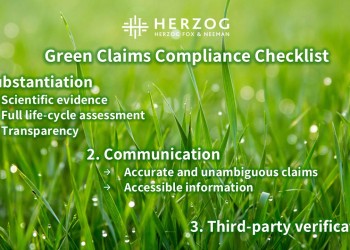Client Update | Communications Law (Bezeq and Transmissions) (Amendment No. 72), 2018
19 June 2018
Dear Clients and Friends,
On May 23, 2018, the Israeli Parliament introduced the Communications Law (Bezeq and Transmissions) (Amendment No. 72), 2018 (the “Amendment“). The Amendment refers to Section 30A of the Communications Law (Bezeq and Transmissions), 1982 (the “Law“), commonly known as the “Spam Law”.
The Amendment addresses two main aspects:
1. Broadening the Definition of the Term “Advertisement”
Prior to the Amendment, Section 30A of the Law defined the term “Advertisement” as “any commercial message intended to encourage the purchase of a product or a service, or otherwise promote a monetary expenditure, as well as any message that is disseminated to the general public with the objective of requesting a donation or propaganda”.
The Amendment broadened the aforementioned definition to include a message that is disseminated to the general public (which is not an “Advertisement” message under the Law), whereby the message invites the recipient to dial a designated number specified in the message, in order for the recipient to receive further information. It should be noted that the Amendment excludes messages from the State and its institutions, messages from rescue and emergency services or other entities as determined by the Minister of Communications.
In accordance with the explanatory notes to the Amendment, the objective is to prevent the advent of
messages (usually comprising minimal details) being disseminated to the general public, mainly via an
automatic dialling system, in order to solicit a call by the recipient to a designated number, as specified in the
messages.
2. Broadening the Prohibition Regarding an Automatic Dialling System
The Amendment also broadened the prohibition included in Section 30A(b) of the Law, according to which an advertiser shall not transmit an Advertisement by or through facsimile, an automatic dialling system, an electronic message or SMS, without having received the express prior written consent of the recipient, including by means of an electronic message or a recorded conversation. In accordance with the Amendment, dialling a recipient using an automatic dialling system without receiving the recipient’s consent accordingly, shall be deemed a violation of the Law, even if the call is terminated prior to being answered, and when the recipient calls back – an Advertisement is played to him/her.
According to the explanatory notes to the Amendment, it was intended to address the phenomenon whereby advertisers call recipients using an automatic dialling system, and disconnect before the call is answered, in order to compel the recipient to return the call, thus enabling the advertiser to play him/her an Advertisement or message (the phenomenon is commonly known in Hebrew as “Zintok”). Prior to the Amendment, Advertisers used the “Zintok” tactic in order to bypass the legal restrictions of the Law.
Please do not hesitate to contact us if you have any questions or require any clarification regarding the above.
Herzog Fox Neeman





